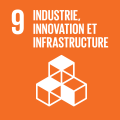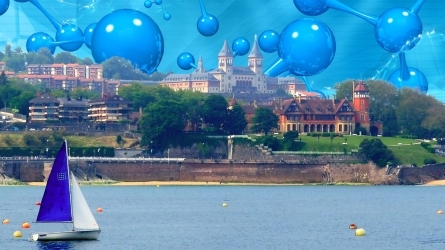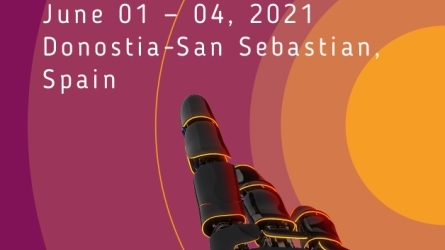
Transforming workplaces through digitalisation - Beyond4.0 Summer School 2021
Description
Workshop-a aurrez aurre ospatuko da eta online zuzenean parte hartzeko aukera ere egongo da ZOOM bidez. Matrikula prozesuan nola parte hartuko duzun aukeratu: aurrez-aurre edota online zuzenean.
Uda Eskolaren helburu nagusia digitalizazioari eta automatizazioari buruzko programa trinko batean oinarritutako prestakuntza osoa eskaintzea da. Ekitaldiaren helburua da ebidentzian oinarritutako politiken ulermenean sakontzea, eraldatzeko potentzialarekin, aro digitalean lanari eta ongizateari forma emateko. Jarduerak agertoki bat eskaintzen du proiektuaren aurrerapenaren egoera islatzeko. Hainbat arlotako alderdi desberdinak partekatu eta eztabaidatuko dira, hala nola ekoizpenaren digitalizazioa, lanaren digitalizazioa, trebetasunak, datu iturriak, azterketa historikoa eta gizarte politika. Gainera, udako eskolak aukera emango die doktoregoko ikasleei beren egungo ikerlanak aurkezteko.
Uda Eskola gaika orientatuko da, eta lau ardatz nagusi izango ditu:
Lanaren eta ekoizpenaren digitalizazioa:
Nola aztertu eta ikertu lana eta ongizatea aro digitalean.
Nola aztertu eraldaketa teknologikoen ondorio sozioekonomikoak.
Azterketa historikoa eta datu iturriak:
- Nola aztertu eraldaketa teknologikoak ikuspegi historiko batetik
- Zer datu multzo dira erabilgarriak eta nola erabili eta konektatu modurik egokienean
Digitalizazioari emandako eskualde erantzunak:
- Nola aztertu eskualdeetako testuinguruak eta ekosistemak eta haien eraldaketa digital ekonomikoa
Politika soziala eta eskumenak:
- Nola aztertu ongizatearekin, fiskalitatearekin eta inklusioarekin loturiko plataforma ekonomiak.
- Nola ulertu alderdi interesdunen etorkizuneko gaitasunak eta zereginak
Europako lehen mailako erakunde akademikoek eta ikerketako erakundeek gai horien guztien inguruan eztabaidatuko dute. BEYOND4.0-rekin batera, H2020 programako beste partzuergo batzuek parte hartuko dute; esaterako TECHNEQUALITY eta PLUS. Horretaz gain, bertan izango dira ikerketako beste ekintza batzuk, hala nola PARADIGMS4.0. Babes sareak Gizarte Berrikuntzako Europako Eskola (ESSI) eta Lantokian Berritzeko Europako Sarea (EUWIN) dira.
BEYOND4.0 partzuergoa Europako bederatzi unibertsitate eta ikerketa zentrok osatzen dute, Udako Eskolaren bigarren edizioa antolatzen du eta Sinnergiak - Universidad del País Vasco/Euskal Herriko Unibertsitateak, Institute for Employment Relatios - Universidad de Warwick eta TNO erakundeak diseinatzen du. Proiektu honek Europar Batasunaren Horizonte 2020 ikerketa eta berrikuntza programaren finantzaketa jaso du, 822296 zenbakidun diru laguntzetarako akordioaren bidez.
Partzuergoa:
- Sinnergiak - Universidad del País Vasco/Euskal Herriko Unibertsitatea (Espainia)
- Institute of Employment Research - University of Warwick (Erresuma Batua)
- The Netherlands Organisation of Applied Research (Herbehereak)
- Department of Social Research - University of Turku (Finlandia)
- Le CNAM-CEET (Frantzia)
- Institute of Philosophy and Sociology - Bulgarian Academy of Sciences (Bulgaria)
- Sozialforschungsstelle Dortmund - Technische Unviersität Dortmund (Alemania)
- Institute for Innovation and Public Purpose - University College London (Erresuma Batua) University of Helsinki (Finlandia).
Objectifs
Proiektuaren aurrerapen egoera islatzea eta honako hauei buruzko ondorioak aurkeztea: gizarte politika; azterketa historikoa; datu iturriak; eskumenak; politiken lanketa; lanaren digitalizazioa eta ekoizpena.
Europako doktoregoko ikasle gazteei beren lanak aurkezteko aukera ematea. Saio berezi bat antolatuko da ikasleen trebetasunak garatzen laguntzeko (adibidez, EBko politikarekiko konpromisoa, ikerketa publiko zabalago bati komunikatzea).
Saio paralelo bat aurkeztea, EB mailan garrantzitsuak diren beste proiektu, sare eta ikerketa erakunde batzuekin lankidetzan.
Activité s'adressant à
- Unibertsitateko ikasleak
- Unibertsitarioak ez diren ikasleak
- Irakasleak
- Profesionalak
Directeurs
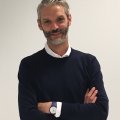
Egoitz Pomares Urbina
Universidad del País Vasco/Euskal Herriko Unibertsitatea, Ikerlaria
Egoitz holds a Bachelor of Laws (major in Economics), a MBA and MA in Social Innovation. He obtained his international PhD on Social and Legal Sciences by the University of the Basque Country. Since 2013 is part of Sinnergiak, a research organisation of the University of the Basque Country. In addition to his academic background he is a member of the Steering Committee of the European Workplace Innovation Network (EUWIN) and Member of the Beyond4.0 and GI-NI projects (H2020) Executive Boards.
Conférenciers

Sally-Anne Barnes Barnes
Dr

Ronald Dekker

Steven Dhondt
Steven Dhondt PhD is senior research scientist at TNO (SPE) and Visiting Professor at the Catholic University of Leuven (chair: Workplace Innovation). Steven has been involved in large scale EU-projects (HiRes; Meadow; the European learning network on Workplace Innovation (EUWIN); SI DRIVE, SIMPACT, SHINE) and projects for interna- tional organisations (ILO, EU-OSHA, Eurofound). He is the coordinator of the FWO/SBO Paradigms-project which develops strategies for workplace innovation in Belgium. Dhondt is responsible for the development of a monitor for measuring technology and labour market impacts (Institute GAK (NL); Shift2Rail (EU)). He has written extensively on workplace innovation, quality of work and innovation. He co-ordinates a major TNO research programme on Smart Work. He is member of several advisory/management boards for Euro- found, INSCOPE, sfs-TUDO and major EU-projects (Finland, Germany, Norway, Belgium).

Jan Drahokoupil

Dessers Ezra
Ezra Dessers PhD, is Research Manager at HIVA-KU Leuven and Assistant Professor at KU Leuven. He is actually in charge of Paradigms 4.0, a multidisciplinary research project that investigates how key enabling technologies, which are considered to be the motors behind the ongoing digital transformation of industry, could foster societal aims, while at the same time cradle high performance organisations. Paradigms 4.0 studies the relation between technology and work organisation, the link with occupational health and safety, the shifting needs in terms of skills and competencies, the role of worker participation in innovation, and the labour market impact of these new technologies. The project looks at how the gained insights might serve as building blocks for high road strategies towards Smart Industrial Specialisation at the level of organisations and ecosystems.
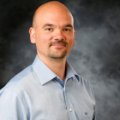
Enrique Fernandez Macias
Enrique Fernández-Macías is a former Research Manager at Eurofound. He currently works at the European Commission Joint Research Centre in Seville. Enrique holds a PhD in Economic Sociology from the University of Salamanca, his main research interests include job quality, occupational change and the division of labour.

Mattia Frapporti
Mattia Frapporti has obtained his PhD in History and Cultures at the University of Bologna with a research thesis entitled “The logistics space of the United Europe. On Jean Monnet and the rationality of integration”. His focuses are on the process of European integration, the politics of infrastructures, logistics and the role of State. His now post-doc fellow at the University of Bologna mainly focusing on platforms in the urban spaces and on the genealogy of logistics.

Carl Benedikt Frey
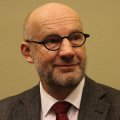
Olli Kangas
Prof. Olli Kangas (male) has a wide experience of comparative policy analyses. He is the leader of the planning and evaluation group of the Finnish basic income experiment. The Finnish basic income experiment is one of the policy measures designed to reform the Finn- ish social security system to better correspond with the changes in working life, to make social security more participatory and diminish work-disincentives, reduce bureaucracy and simplify the complex benefit system. Furthermore, he is Director of Community and Gov- ernmental Relations at the Social Insurance Institution of Finland (KELA). His research has revolved around the political economy of the welfare state, structural, political and cultural causes of the development and consequences of different welfare state regimes.
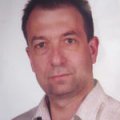
Vassil Kirov
Dr Vassil Kirov PhD (Sciences Politiques) is Associate Professor in the Institute for the Study of Societies and Knowledge, Bulgarian Academy of Sciences (ISSK) and Asso- ciate researcher at the Centre Pierre Naville, University of Evry (France) and at the European Trade Union Institute (ETUI). His research interests are in the sociology of enterprise, work and organisations, employment relations, digitalization labour markets and Europeanisation. Vassil Kirov has been a researcher in large EU-funded research projects and has worked as an external expert for the European Commission, ILO, Eurofound, CEDEFOP, the Fundamental Rights Agency, the Swiss Development Agency, etc. Currently he is a Visiting Professor at Sciences Po, France and LISER, Luxembourg. He has published several books and articles in international scientific journals, including on digitalization and platform work.
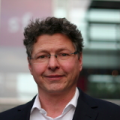
Michael Kohlgrüber
Dr Michael Kohlgrüber (male) is an economist, doing research in business, economic and social sciences. Since 2012, he is senior researcher at Social Research Centre (sfs). His cur- rent research is focused on the integration of social and technological innovation in indus- trial companies. In the context of Industry4.0, he is developing and implementing social requirements related to the design of sociotechnical systems (technology-organization-peo- ple/skills), i.e., implementing social innovation processes, getting users and stakeholders of new technologies involved in defining social requirements. This includes the perspective of employees and their representatives (work councils, trade unions). Furthermore, he is doing research on the situation and perspective of low-qualified workers considering the contri- butions of different actors of the labour market and national VET systems.
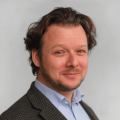
Mark Levels
Prof. dr. Mark Levels is Professor of Health, Education and Work at Maastricht University. He is program director of the research program Health, Skills, and Inequality at the Research Centre for Education and the Labor Market (ROA) of Maastricht University, member of the ROA management team, associate member of Nuffield College in Oxford (UK), fellow of the Graduate School of Business and Economics (GSBE)of Maastricht University, and fellow of the Amsterdam Centre for Learning Analytics (ACLA). He teaches macrosociology at University College Maastricht (UCM).

Fregin Marie-Christine
Maastricht University
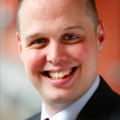
Raymond Montizaan
Raymond Montizaan is researcher at the Research Centre for Education and the Labour Market (ROA). He holds a Master’s degree in Economics from Tilburg University and a Master’s degree in Domain Orientated Economics from Radboud University Nijmegen. He obtained his PhD from Maastricht University in 2010. Before joining ROA, he worked at the Netherlands Bureau for Economic Policy Analysis (CPB). He is affiliated to NSI and IZA. In his current work, he focuses on the relation between human capital development, productivity and retirement, and behavioral economics.

Silvia Napolitano
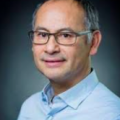
Peter Oeij
TNO
Peter Oeij, PhD is a senior research scientist. He is and was involved in several EU- projects and international projects for EU-statutory organizations (such as OSHA, Euro- found). Until recently he was TNO-project leader of the just finished SI Drive (H2020/FP7) project and of the Eurofound study on ‘Workplace Innovation in European companies (ended in 2015). Peter holds a PhD in management science and is an editorial board member of four journals. The focus of his work is on innovation management, workplace innovation, social innovation and organizational and team dynamics.
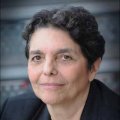
Carlota Perez
Carlota Perez is the Honorary Professor of Technology and Development for IIPP at UCL; Professor of Technology and Development at the Ragnar Nurkse Institute, Technological University of Tallinn (TUT), Estonia; Visiting Professor at LSE since her fixed tenure as LSE Centennial Professor (2013-2016); and Honorary Professor at SPRU (Science and Technology Policy Research), University of Sussex, a post that began with a research fellowship in 1983. From 2015-2016 she was the Chair of the European Commission’s Horizon 2020 Expert Group for Green Growth and Jobs, and was Member of the Economic Advisory Panel of the UN Global Commission on the Economy and Climate in 2013-14. Carlota has written extensively on the socio-economic impact of technical change and the historical context of growth and development.
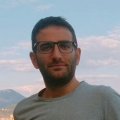
Maurilio Pirone
University of Bologna
Maurilio Pirone is Post-Doc Fellow in "Discipline of labour and new processes of unionism in platform economy" for the Horizon2020 Project PLUS (Platform Labour in Urban Spaces). Previously, he completed his PhD in Politics, Istitutions, History at the Department of Social and Political Sciences of University of Bologna with a final dissertation titled "The government of labour-force. Production and subjectivity in Marx" (supervisor Prof. Sandro Mezzadra). He is member of Into the Black Box research group and is project manager. His research deal with platform capitalism, new forms of urban unionism, the impact of digital technologies on labour discipline, logistics.

Peter Totterdill

Christopher Warhurst
Institute for Employment Research-University of Warwick
Professor Chris Warhurst (PhD) is Director of IER. He has over 25 years’ experience of research and teaching in higher education and 15 years’ experience directing research centres/institutes. He is a Trustee of the Tavistock Institute in London, an Associate Research Fellow of SKOPE at the University of Oxford and a Fellow of the Royal Society of Arts. He is also Chair of the Editorial Management Committee of Human Relations. His research focuses on job quality, skills and technology and work. He is a former editor of the leading international journal Work, Employment and Society and was an Executive Board member of the Society for the Advancement of Socio-Economics and a director of the Scottish Low Pay Unit. He has been an expert advisor to the UK, Scottish, Hungarian and Australian Governments as well as the OECD, Oxfam and the Scottish Living Wage Campaign.
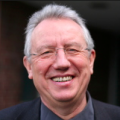
Antonius Schröder
Dr Antonius Schröder is a senior researcher and member of management board of sfs, responsible for European research. He is working in the research area “Work and Edu- cation in Europe” and has worked in and managed several European projects in the fields of industrial change and social dialogue, continuous vocational training, (distant) learning arrangements, evaluation, organisational and personnel development. He is Vice-Chairman of the Working Group People (Human Resources) at the European Steel Technology Plat- form ESTEP.

Erik Stam
Résumé
Conclusions envoyées par la direction du Cours d'été
Objectifs de développement durable
Chez UIK, nous voulons contribuer à la réalisation des objectifs de développement durable (ODD) 2030. Pour ce faire, nous avons identifié les objectifs auxquels nos programmes contribuent. Vous pouvez vérifier les objectifs ci-dessous.
L'Agenda 2030 est le nouvel agenda international de développement adopté en septembre 2015 par les Nations Unies. Cet agenda se veut un outil pour favoriser le développement humain durable sur toute la planète. L'éradication de la pauvreté, la réduction de l'inégalité et de la vulnérabilité et la promotion de la viabilité constituent ses principaux piliers. Il s'agit d'une chance unique de transformer le monde jusqu'en 2030 et de garantir les droits de l'homme à tous.
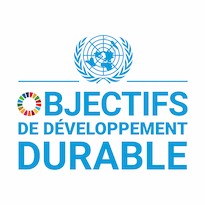
1 - Pas de pauvreté
Éliminer la pauvreté sous toutes ses formes et partout dans le monde. Questions clés : éradication de l’extrême pauvreté, réduction de la pauvreté et de la vulnérabilité, protection sociale, accès aux services de base, encourager la résilience des personnes pauvres et vulnérables, coopération pour le développement, cadres réglementaires solides.
Plus d'informations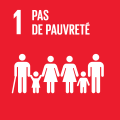
5 - Égalité entre les sexes
Réaliser l’égalité des sexes et autonomiser toutes les femmes et les filles. Questions clés : fin de toutes les formes de discrimination et de violence, reconnaissance des soins et le travail domestique non rémunéré, responsabilité partagée, égalité des chances, participation pleine et effective, droits reproductifs, égalité des droits aux ressources économiques, ainsi qu’à l’accès à la terre, à d’autres biens et à la propriété.
Plus d'informations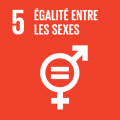
8 - Travail décent et croissance économique
Promouvoir une croissance économique soutenue, partagée et durable, le plein emploi productif et un travail décent pour tous. Questions clés : travail décent, plein emploi productif, entrepreneuriat, promotion des micro-entreprises et des PME, droits du travail, environnements de travail sûrs, emploi des jeunes, égalités des chances et de rémunération, renforcement des institutions financières, dissociation de la croissance économique vis-à-vis des dégradations environnementales.
Plus d'informations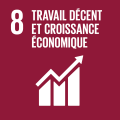
9 - Industrie, innovation et infrastructure
Mettre en place une infrastructure résiliente, promouvoir une industrialisation durable qui profite à tous et encourager l'innovation. Questions clés : infrastructures fiables, durables, résilientes et de qualité, industrialisation durable et qui profite à tous, modernisation, technologies et procédés industriels propres et respectueux de l'environnement, recherche scientifique et amélioration de la capacité technologique, accès universel des TIC.
Plus d'informations